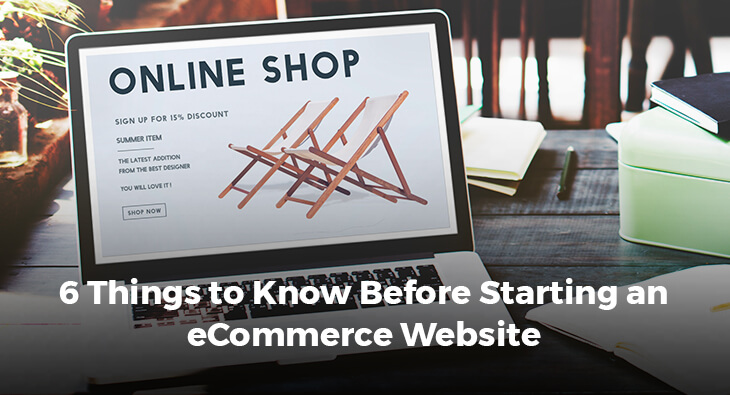With new eCommerce sites popping up every day, online shopping is becoming the easiest and most convenient way to purchase products and services. But, not all entrepreneurial ventures into the online market have been successful. The biggest contributor to eCommerce failure is lack of knowledge.
While there are similarities between the traditional way of doing business and running an online store, there are key differences that affect business growth and the overall customer experience, which ultimately determine the success of an eCommerce site.
Things to know before Launching an E-commerce Website
Let’s look at a few things every aspiring eCommerce entrepreneur should know when launching a new online store:
Simple User-Interface (Website) Design
A website’s look and feel is the first impression a customer gets of an online business. Neon signs in the window of a brick-and-mortar store might attract customers, but a flashy website design with all the latest bells and whistles meant to impress visitors may not. The more complicated a website the more difficult it is for a customer to find a product. One important rule to keep in mind is “the fewer clicks it takes a customer to get to what they want, the more satisfied they will be with their shopping experience.” On the technical side, many times fancy website design options don’t perform well and may cause visitors to become confused or irritated.
Email us anytime!
Email customer service 24/7
![]()
Call us anytime!
Reach customer care 24/7 at +1 (727) 330-3944
Market Research and Target Audience
Before launching an eCommerce website, get to know your competition and target audience. Competition for a local business may be limited to other stores in the same neighborhood. Well, competition for an online store can be worldwide. Make sure there is a market for the products or services. Find out if these products or services have something new or better to provide customers than the competition. Target audiences can vary as well since not all people who shop traditional stores shop online.
Business Model B2B and Retail
Business-to-business (B2B) is the sale of goods, services or information to businesses instead of consumers. It is predicted that B2B sales will soon exceed sales to consumers. Of course, online sales to individual consumers, called e-tailing, will continue to be a popular choice.
Related Blog
- Duplicate Processing Chargeback
- 6 Things to Know Before Starting an eCommerce Website
- The Importance of Cross-Checking the Authenticity of Online Credit Card Transactions
- 6 Tips To Negotiate Credit Card Processing Deal
- A Quick Guide To Understand ECommerce Checkout Flow
Website Marketing
It’s surprising that some people still believe the myth that, “if they create a website, people will automatically find it.” This worked in the 1989 fantasy sports movie “Field of Dreams” when a farmer heard the words, “If you build it, he will come.” And, it works to some extent for brick-and-mortar stores in attracting the attention of passersby on their way to somewhere else.
But, this hasn’t proven true for the thousands of undiscovered and under-discovered websites currently existing around the globe. Marketing is a needed component of any business plan, no matter what products or services are being sold or where they are being sold, and there are many means to attracting traffic to a particular website, like website adverts, telemarketing, direct mail, email marketing, affiliate marketing and social media. Then there is organic search engine optimization (SEO) involving web usability, link building, keywords, meta tags, etc.
Online Inventory Management
Just like traditional businesses, eCommerce businesses need to keep track of inventory for the products displayed for sale on a website. Using an automatic inventory system keeps product information and availability up-to-date 24/7. An inventory system is best integrated into a website during the planning and design stages. And, must have built-in protection from fraudsters and hacking attacks.
Customer Service
It’s nearly impossible to ignore a customer when face-to-face in a brick-and-mortar store. But, it’s easier when the only contact us via phone or email. Plus, communicating over the phone and through email can feel more impersonal. In all situations, merchants need to make sure their customer service departments respect and treat their customers well by being open and accessible, responding quickly, fairly and honestly, and providing solutions to complaints and inquiries. A business can get by with fair to good customer service; however, the benefits of great to outstanding customer service will outweigh any extra effort or cost to build an exceptional customer friendly environment.



